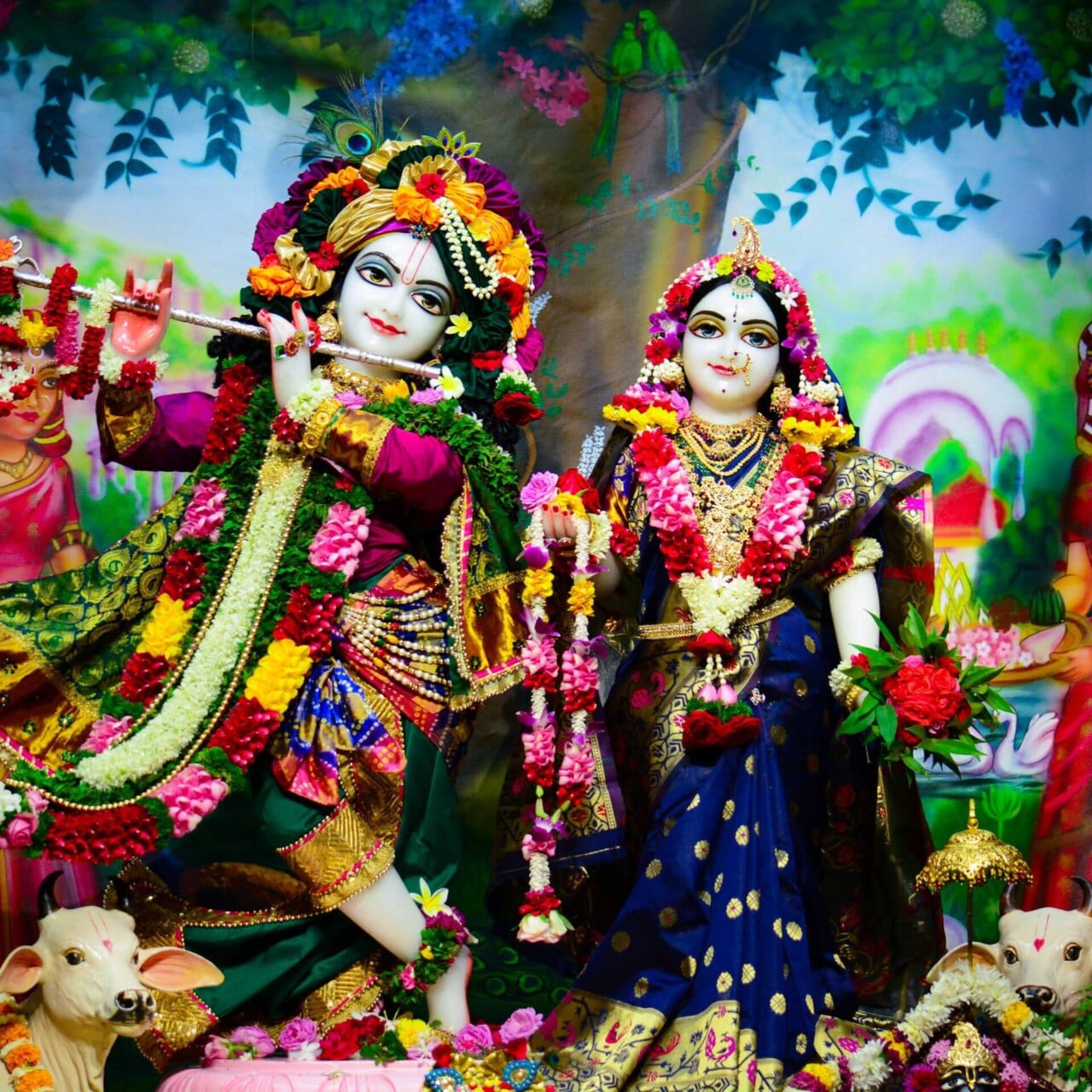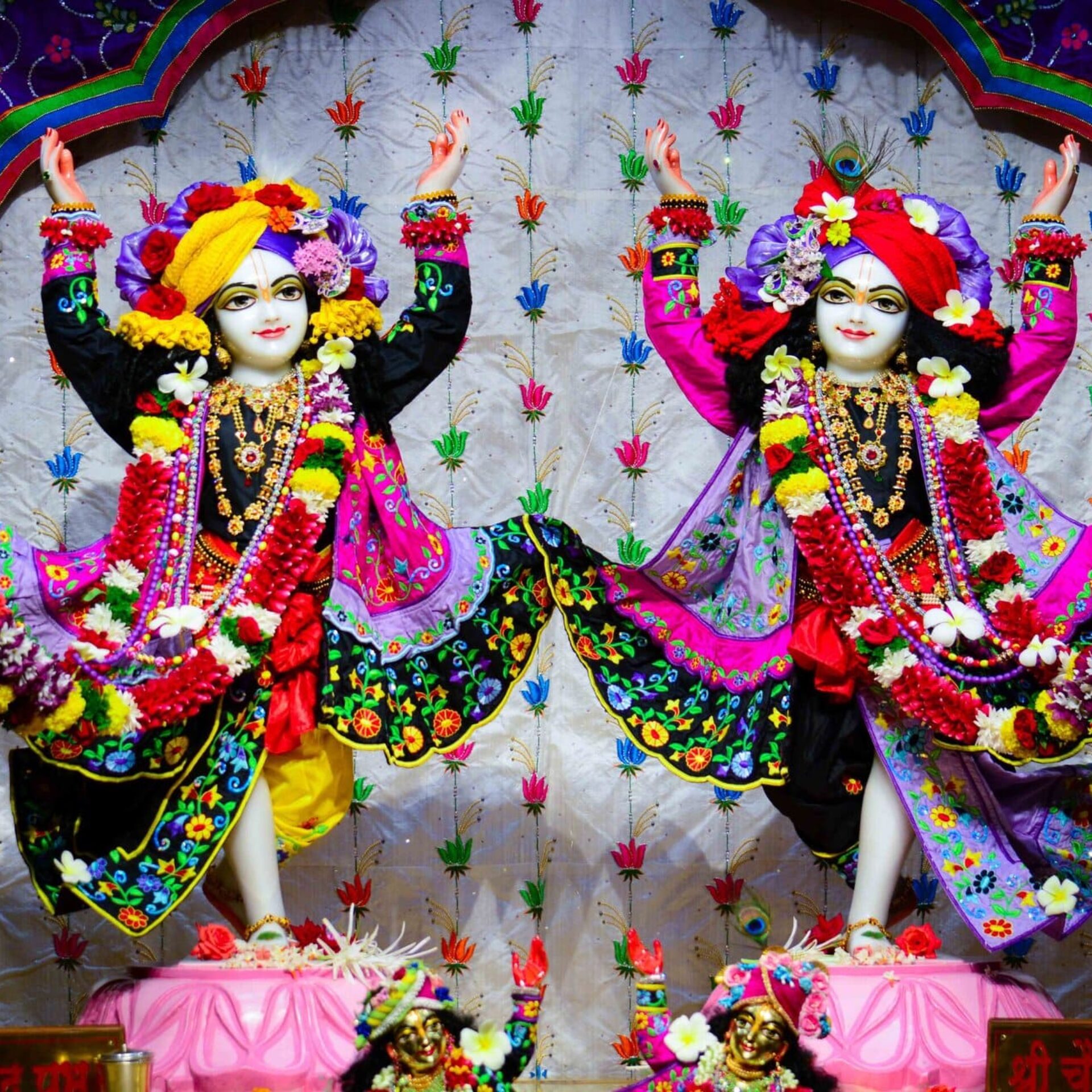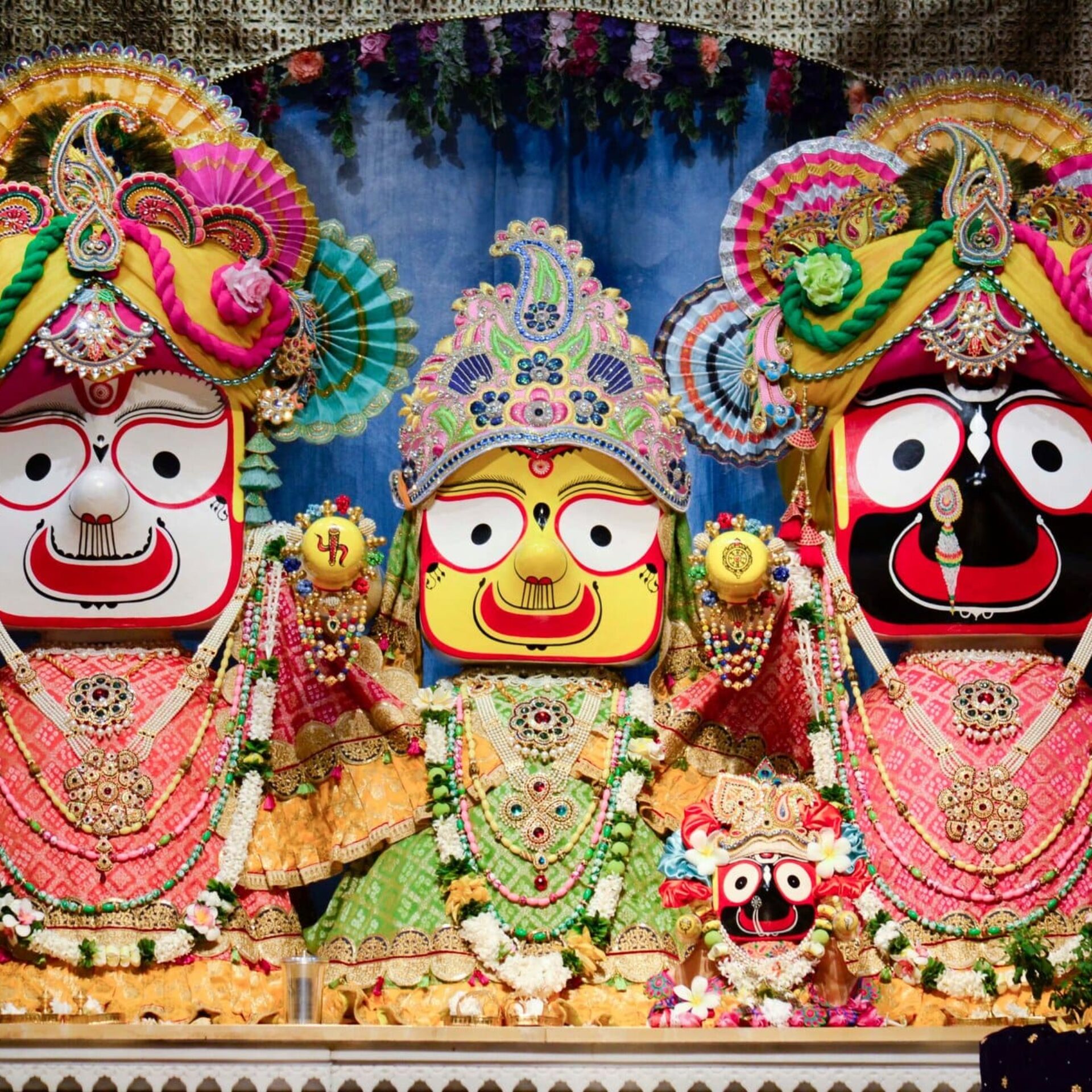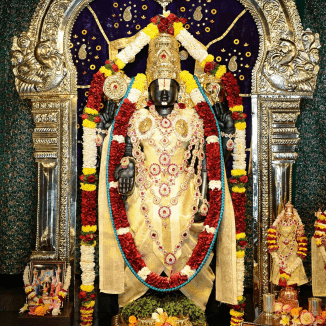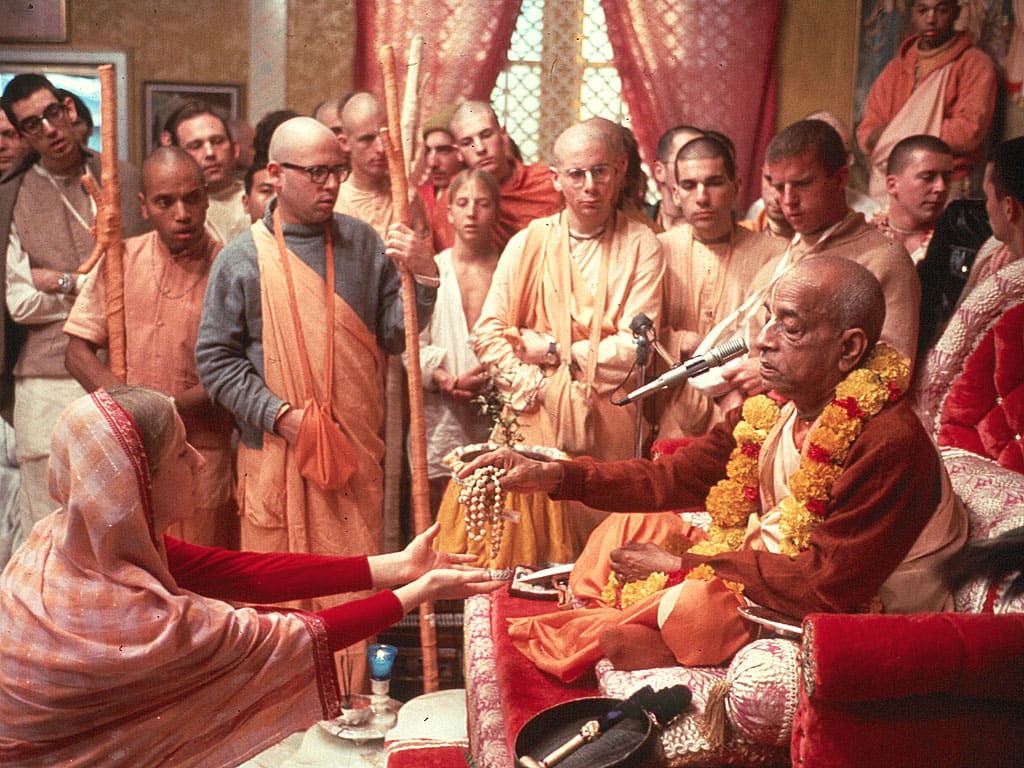
What is Vaishnavism ?
Vaishnavism is one of the major traditions within the broader Vedic, or Hindu, spiritual culture. Unlike some Vedic traditions, Vaishnavas believe that the ultimate reality is personal. Thus, they understand that God is the Supreme all-attractive person, or Krishna. They acknowledge that all living beings are eternal persons, and that all life’s problems are rooted in the individual soul’s forgetfulness of his or her relationship with God.
Vaishnavas teach that by chanting God’s names the soul can reawaken his original spiritual knowledge, live peacefully in this life and return to the spiritual realm, or Vaikuntha, the place of no anxiety, at the time of death.
There are four main sampradayas or Vaishnava lineages all based originally in India. Vaishnavas worship Lord Vishnu, Lord Rama, and Lord Krishna as different manifestations of the same Supreme Lord or one supreme divinity, although the styles of worship and emphasis differ.The Vaishnava tradition has widely influenced South Asian culture through music, dance, theater and art. Vaishnavism’s heartfelt philosophy and poetic sacred texts integrate a profound theology with astute social discourse.
The key Vaishnava sastras, or scriptures, are Krishna’s teachings in the Bhagavad-gita, included in the longer work, the Mahabharata), the Srimad Bhagavatam (one of the eighteen Puranas), the Ramayana, and the more recent 16th Century Sri Chaitanya-charitamrita.
ISKCON is part of the Gaudiya, or Chaitanya Vaishnava, tradition, which hails from the eastern regions of India. Gaudiyas place special emphasis on the teachings of 16th Century saint and avatar, Sri Caitanya Mahaprabhu. Gaudiya Vaishnavism in turn gave rise to the International Society for Krishna Consciousness (ISKCON), which was founded by Srila Prabhupada in 1966. His organization, ISKCON, has increased the awareness and growth of Vaishnavism worldwide since the late 1960s. Today Vaishnava teachings have crossed all geographic borders and proven relevant in addressing humanity’s essential needs.
EKADASHI FAST
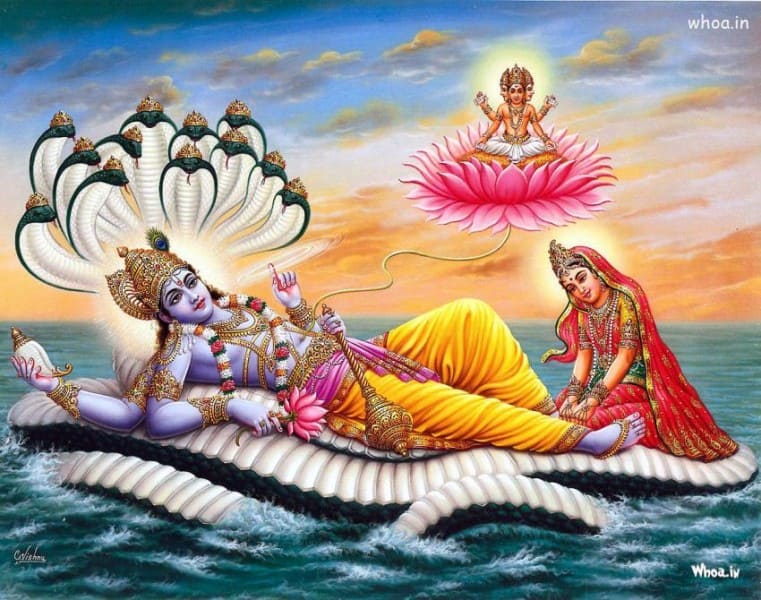
Ekadashi fasting is about purifying your soul and preparing yourself to attain Moksha (salvation). This ritualistic practice helps human beings to get rid of malefic planetary influences and attain happiness.
While all Hindus can observe this fast, it is particularly popular among the devotees of Vishnu and is kept on the 11th lunar day of the lunar cycle of a Hindu calendar month.
Ekadashi fasting is about spiritual cleansing. It is dedicated to Lord Vishnu – the protector lord of the realm. According to Hindu belief, the lunar phase has two distinct phases – the Krishna Paksha (new moon) and the Shukla Paksha (waxing moon). Each phase is of 14 days.
The eleventh day is called Ekadashi (literally meaning eleventh). The Vratham, or the ritualistic fast kept on this day, is called Ekadashi Vratham and is observed by millions of Hindus worldwide. There are strict Ekadashi fasting rules.
In this article, we shall discuss how to do Ekadashi fast and what things you should be careful about while observing the Ekadashi Vrat.
The Ekadashi fast benefits are meant for those who have faith and worship Lord Vishnu. It is considered to be amongst the most fruitful fasts in Hinduism. Ekadashi fast’s benefits can bring you peace, harmony, and prosperity.
Vishnu narrated the significance of the Ekadashi fast to Yudhishthira. He said genuinely faithful people must observe this day to purify the soul and attain Moksha (salvation).
Since the primary purpose of human life is to attain salvation, this fast is said to be particularly helpful for all. Therefore, devout observers of this pious Hindu ritual achieve peace of mind and prosperity.
Ekadashi fast has many rules that must be observed properly to attain the desired results:
- Pregnant women and infirm and older adults must not keep this fast.
- Only determined and deeply spiritual people can observe this fast as per the rules.
- Food and water must not be touched during fasting hours. However, those who cannot observe Nirjala Ekadashi (Ekadashi without water) can intake fruit and milk.
- Intake of food grains, meat, and fish is strictly prohibited.
- The fast must start at sunrise and must end at sunset. Observers of this fast are advised to wake up in the morning, take a purifying bath and recite the Vishnu mantra, “Om Namo Bhagvate Vasudevaya.”
- Observers of this fast should refrain from violence, deceit, and lying and indulge in charitable activities.
- Ekadashi fasting food excludes meat, grains, and fish. Instead, fruits, milk, milk-based, and non-grain products will be eaten. If you are observing Ekadashi fast for the first time and don’t know what to eat, try to avoid flour, rice, wheat, pulses, onion, and garlic.




